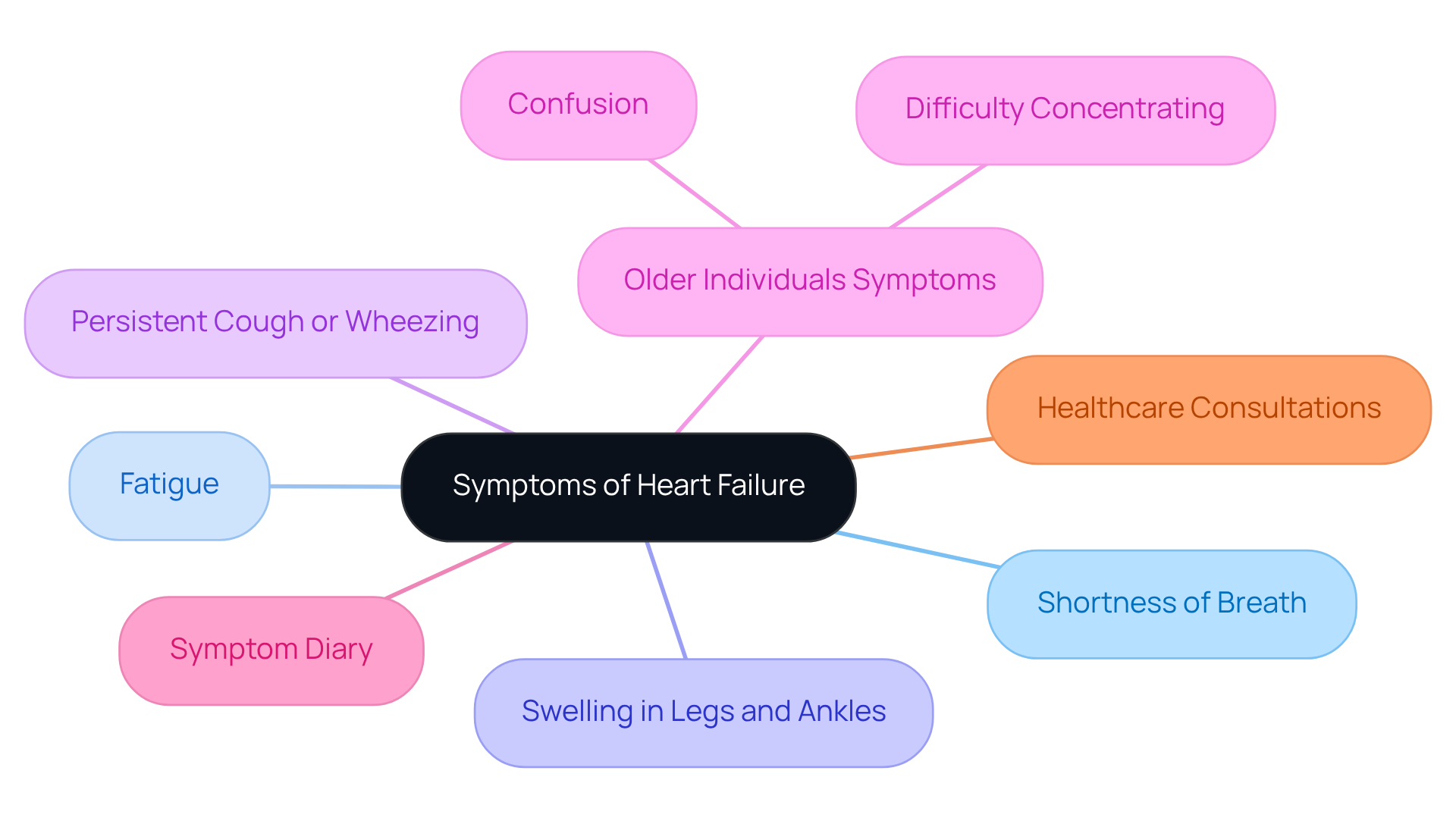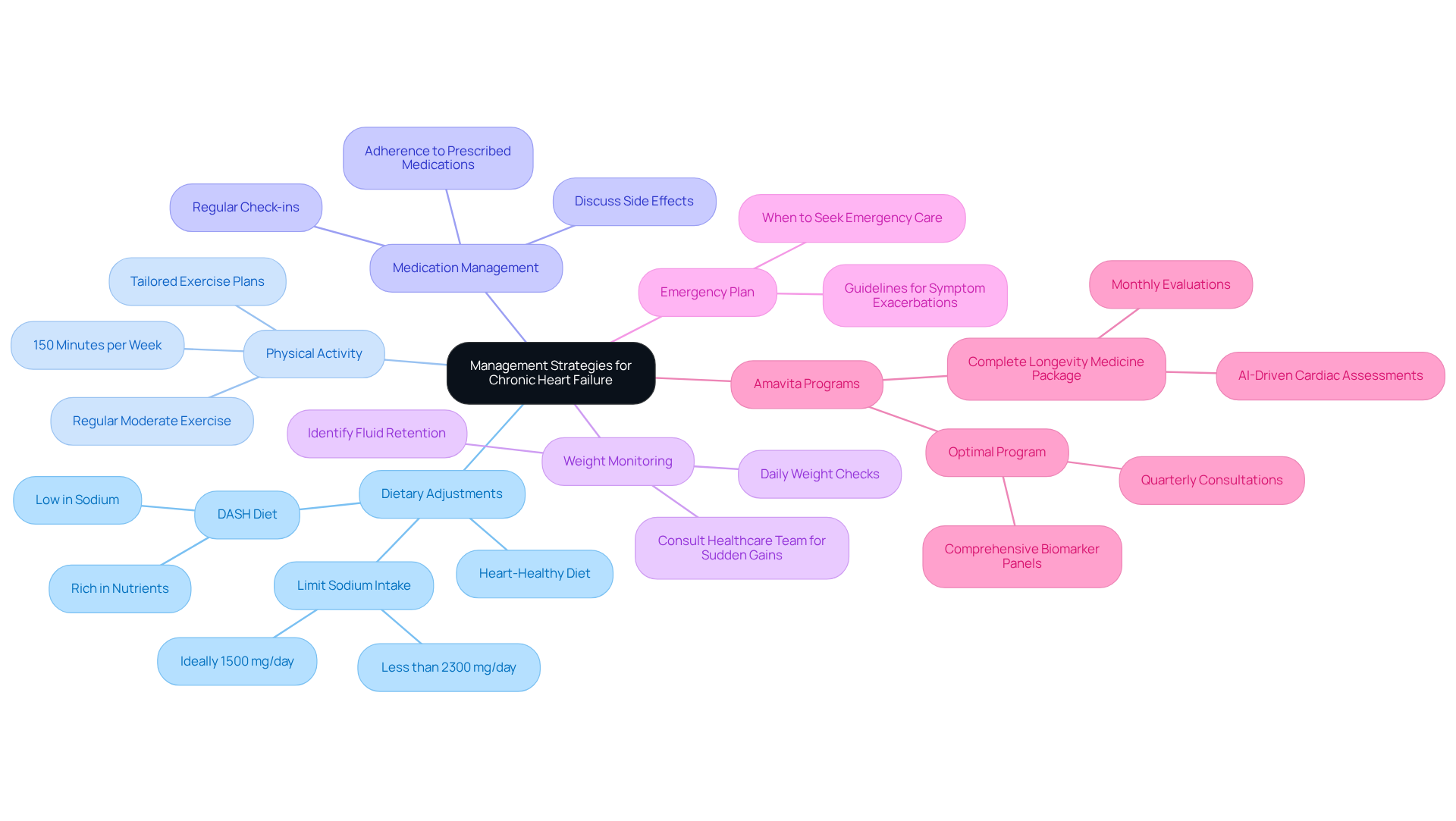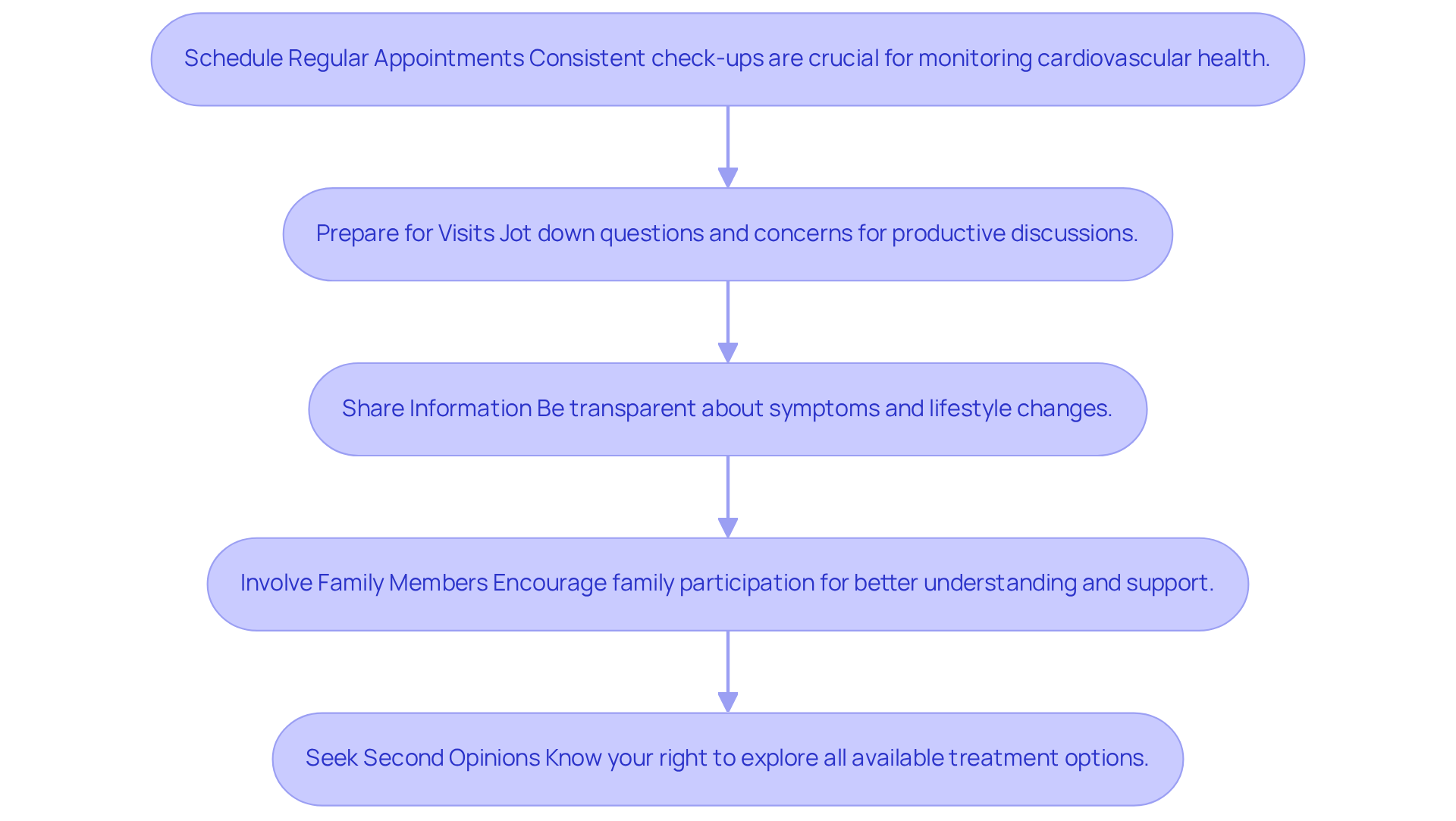


Managing chronic heart failure (CHF) in elderly patients requires a thoughtful and compassionate approach. It’s important to understand that:
play crucial roles in their care. Personalized treatment plans can make a significant difference, and dietary adjustments tailored to individual needs can enhance overall well-being. Effective communication with healthcare providers is essential, as it fosters a supportive environment that helps improve health outcomes for this vulnerable population.
In addition to these strategies, we must consider the emotional aspects of living with CHF. How can we make this journey easier for our loved ones? By focusing on their unique concerns and involving them in their care plans, we can help them feel more in control and valued. This collaborative approach not only addresses their medical needs but also nurtures their emotional health, promoting a better quality of life.
Ultimately, our goal is to provide reassurance and support. Elderly patients facing CHF deserve compassionate care that prioritizes their comfort and dignity. If you or someone you know is navigating this challenging condition, please reach out for assistance. Together, we can work towards a healthier, more fulfilling life.
Chronic heart failure (CHF) presents a profound health challenge, especially for our aging population. Millions are affected, and projections suggest that this number will continue to rise. Understanding the nuances of this condition is vital, as effective management can significantly enhance the quality of life for elderly patients. However, the complexities surrounding symptoms and treatment options often leave caregivers and patients feeling uncertain and overwhelmed.
How can we navigate the intricate landscape of chronic heart failure management to ensure optimal care and support? It’s important to recognize that you are not alone in this journey. There are resources and strategies available to help you and your loved ones find clarity and comfort amidst the challenges. Together, we can explore the available options and work towards a brighter, healthier future.
(CHF) is a progressive disorder that affects many, particularly older adults. The condition known as chronic heart failure is characterized by the heart's inability to pump enough blood to meet the body's needs. This condition often arises from age-related changes in cardiac function and the presence of other health issues. To truly understand chronic heart failure, it is essential to recognize its two main categories:
Common causes include coronary artery disease, hypertension, and previous heart attacks, all contributing to the heart's reduced capacity.
Currently, around 6.7 million Americans over the age of 20 live with , and this number is projected to rise to 11.4 million by 2050. This alarming trend highlights the urgent need for effective management strategies, especially for our elderly population. Cardiologists stress the importance of recognizing the signs and symptoms of chronic heart failure, as can make a significant difference. For example, systolic cardiac dysfunction may be addressed with medications like ACE inhibitors and beta-blockers, while lifestyle changes and diuretics are often recommended for those facing diastolic cardiac challenges.
At Amavita, our comprehensive are designed to identify the specific causes of fatigue and other symptoms. This allows us to create that aim to enhance cardiac function and boost energy levels. Real-life examples underscore the value of these tailored approaches. Individuals with systolic cardiac dysfunction may benefit from such as cardiac resynchronization therapy, while those with diastolic dysfunction might find improvement through dietary changes and regular exercise. Understanding these differences and is vital for both patients and their caregivers, as it encourages and enhances quality of life.
If you or a loved one are experiencing symptoms of chronic heart failure, we invite you to reach out for support. Together, we can navigate this journey and work towards a healthier, more vibrant life.

often presents several common symptoms that may be concerning, including:
For older individuals, these , which can often be misinterpreted as a normal part of aging. Recognizing these signs is crucial, as can significantly improve outcomes.
Keeping a symptom diary can be a helpful approach for both individuals and caregivers. This diary allows you to , which can be invaluable for healthcare providers in promptly. Regular consultations with further enhance the ability to identify these symptoms early, ensuring that appropriate care is administered without delay. Remember, you are not alone in this journey, and to help you navigate these challenges.

Effectively managing requires a multifaceted approach that encompasses lifestyle modifications, adherence to medication, and consistent monitoring. It’s essential to address these aspects with care and understanding. Here are some key strategies to consider:
Remember, you are not alone in this journey. Seeking support and guidance can make a significant difference in managing your health.

Effective communication with healthcare providers is vital for managing chronic heart failure. Patients can enhance their care by following these important steps:
Healthcare professionals emphasize that are not merely routine; they represent a proactive strategy for preserving cardiovascular well-being and avoiding complications. Dr. Elizabeth Spence highlights the importance of client-centered communication, stating, ' is essential for optimal .' By prioritizing communication and preparation, you can take charge of your health journey, feeling empowered and supported every step of the way.

Managing chronic heart failure, especially in elderly patients, requires a compassionate understanding of the condition, its symptoms, and effective management strategies. It is vital to recognize the nuances of chronic heart failure, including the differences between systolic and diastolic dysfunction. Tailored treatment plans can significantly enhance the quality of life for those affected.
Key strategies include:
These approaches empower patients to take control of their health while fostering an environment of support and understanding. Proactive measures, such as keeping a symptom diary and involving family members in care discussions, enable individuals to navigate the complexities of chronic heart failure management more effectively.
The significance of addressing chronic heart failure cannot be overstated. As this condition's prevalence continues to rise, particularly among the elderly, it is crucial to adopt a holistic approach that prioritizes early intervention, lifestyle modifications, and ongoing communication with healthcare professionals. By embracing these strategies, patients and caregivers can work together towards a healthier, more vibrant life, ensuring that chronic heart failure becomes a manageable part of their journey rather than an insurmountable challenge.
What is chronic heart failure (CHF)?
Chronic heart failure (CHF) is a progressive disorder characterized by the heart's inability to pump enough blood to meet the body's needs, often affecting older adults.
What are the two main categories of chronic heart failure?
The two main categories of chronic heart failure are systolic dysfunction, which involves compromised heart pumping ability, and diastolic dysfunction, which involves difficulties in adequately filling the heart.
What are common causes of chronic heart failure?
Common causes of chronic heart failure include coronary artery disease, hypertension, and previous heart attacks, all of which contribute to the heart's reduced capacity.
How prevalent is chronic heart failure in the United States?
Currently, around 6.7 million Americans over the age of 20 live with chronic heart failure, and this number is projected to rise to 11.4 million by 2050.
Why is it important to recognize the signs and symptoms of chronic heart failure?
Recognizing the signs and symptoms of chronic heart failure is crucial because timely intervention can significantly improve outcomes and quality of life.
What medications are typically used for systolic dysfunction?
Medications commonly used for systolic dysfunction include ACE inhibitors and beta-blockers.
What treatments are recommended for diastolic dysfunction?
For diastolic dysfunction, lifestyle changes and diuretics are often recommended, along with dietary changes and regular exercise.
How does Amavita approach the treatment of chronic heart failure?
Amavita conducts comprehensive cardiac assessments to identify specific causes of symptoms, allowing for personalized treatment plans aimed at enhancing cardiac function and boosting energy levels.
What advanced treatments are available for systolic cardiac dysfunction?
Individuals with systolic cardiac dysfunction may benefit from advanced treatments such as cardiac resynchronization therapy.
What should someone do if they or a loved one are experiencing symptoms of chronic heart failure?
If experiencing symptoms of chronic heart failure, it is advisable to reach out for support to navigate the condition and work towards a healthier life.